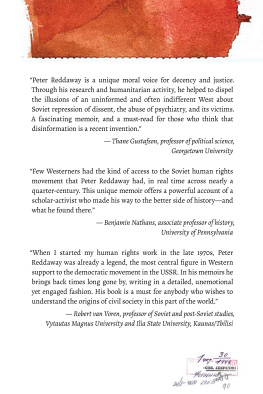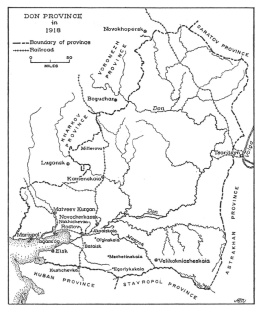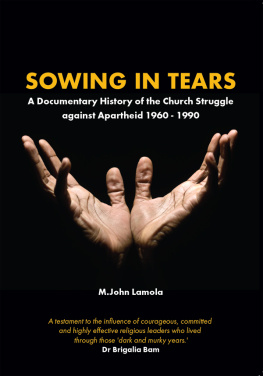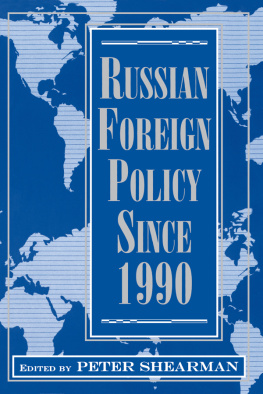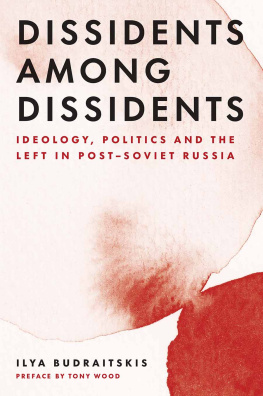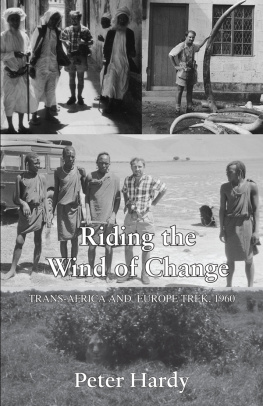Peter Reddaway - The Dissidents: A Memoir of Working with the Resistance in Russia, 1960-1990
Here you can read online Peter Reddaway - The Dissidents: A Memoir of Working with the Resistance in Russia, 1960-1990 full text of the book (entire story) in english for free. Download pdf and epub, get meaning, cover and reviews about this ebook. year: 2020, publisher: Lightning Source, genre: Politics. Description of the work, (preface) as well as reviews are available. Best literature library LitArk.com created for fans of good reading and offers a wide selection of genres:
Romance novel
Science fiction
Adventure
Detective
Science
History
Home and family
Prose
Art
Politics
Computer
Non-fiction
Religion
Business
Children
Humor
Choose a favorite category and find really read worthwhile books. Enjoy immersion in the world of imagination, feel the emotions of the characters or learn something new for yourself, make an fascinating discovery.
- Book:The Dissidents: A Memoir of Working with the Resistance in Russia, 1960-1990
- Author:
- Publisher:Lightning Source
- Genre:
- Year:2020
- Rating:5 / 5
- Favourites:Add to favourites
- Your mark:
- 100
- 1
- 2
- 3
- 4
- 5
The Dissidents: A Memoir of Working with the Resistance in Russia, 1960-1990: summary, description and annotation
We offer to read an annotation, description, summary or preface (depends on what the author of the book "The Dissidents: A Memoir of Working with the Resistance in Russia, 1960-1990" wrote himself). If you haven't found the necessary information about the book — write in the comments, we will try to find it.
Peter Reddaway: author's other books
Who wrote The Dissidents: A Memoir of Working with the Resistance in Russia, 1960-1990? Find out the surname, the name of the author of the book and a list of all author's works by series.
The Dissidents: A Memoir of Working with the Resistance in Russia, 1960-1990 — read online for free the complete book (whole text) full work
Below is the text of the book, divided by pages. System saving the place of the last page read, allows you to conveniently read the book "The Dissidents: A Memoir of Working with the Resistance in Russia, 1960-1990" online for free, without having to search again every time where you left off. Put a bookmark, and you can go to the page where you finished reading at any time.
Font size:
Interval:
Bookmark:
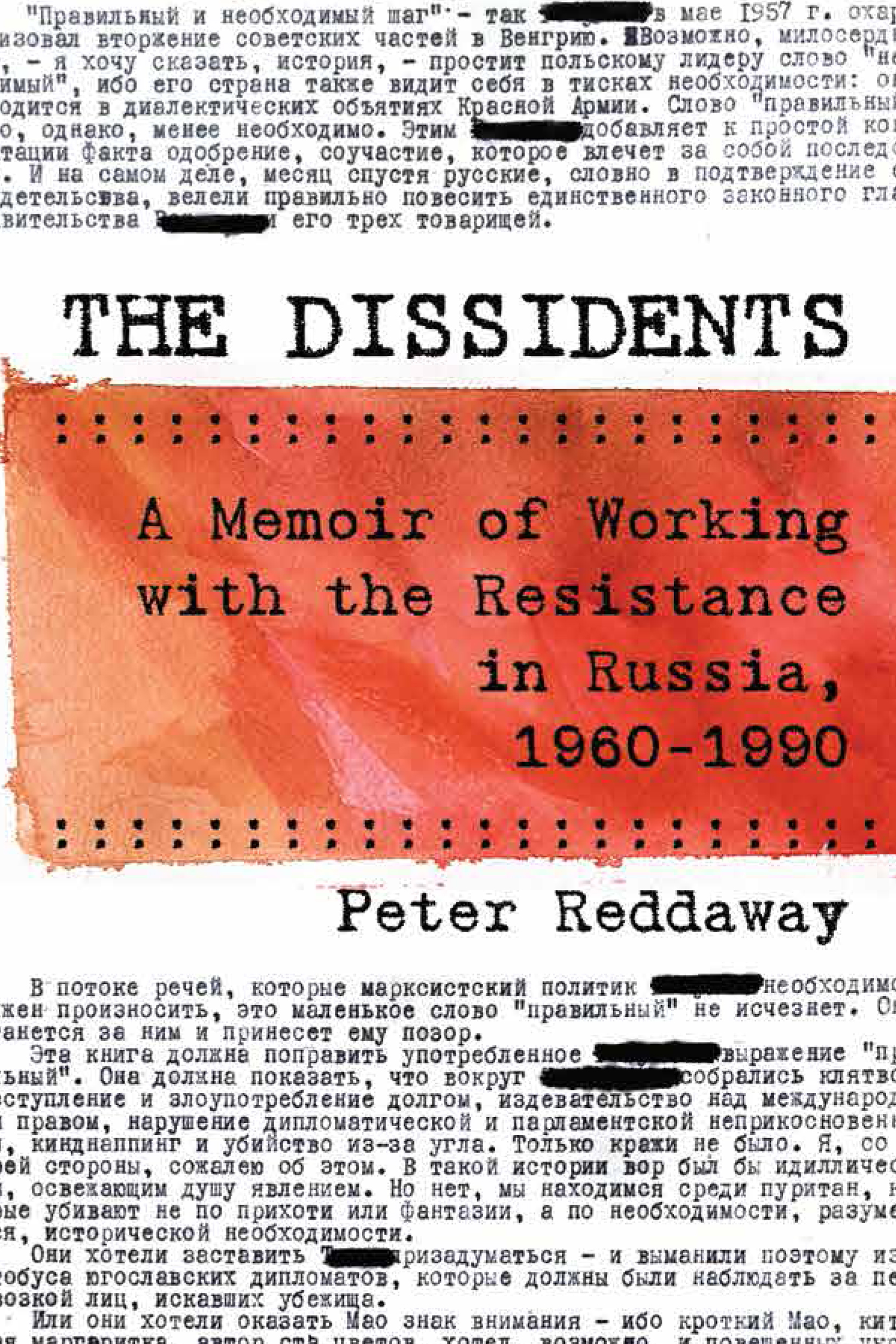

The Dissidents
A MEMOIR OF WORKING WITH THE RESISTANCE IN RUSSIA, 19601990
PETER REDDAWAY
BROOKINGS INSTITUTION PRESS
Washington, D.C.
Copyright 2020
THE BROOKINGS INSTITUTION
1775 Massachusetts Avenue, N.W., Washington, D.C. 20036
www.brookings.edu
All rights reserved. No part of this publication may be reproduced or transmitted in any form or by any means without permission in writing from the Brookings Institution Press.
The Brookings Institution is a private nonprofit organization devoted to research, education, and publication on important issues of domestic and foreign policy. Its principal purpose is to bring the highest quality independent research and analysis to bear on current and emerging policy problems. Interpretations or conclusions in Brookings publications should be understood to be solely those of the authors.
Library of Congress Cataloging-in-Publication Data
Names: Reddaway, Peter, author.
Title: The dissidents : a memoir of working with the resistance in Russia, 19601990 / Peter Reddaway.
Description: Washington, DC : Brookings Institution Press, 2020. | Includes bibliographical references and index.
Identifiers: LCCN 2019018087 (print) | LCCN 2019980856 (ebook) | ISBN 9780815737735 (hardcover) | ISBN 9780815737742 (epub)
Subjects: LCSH: DissentersSoviet UnionBiography. | Human rightsSoviet Union. | Civil rightsSoviet Union. | Reddaway, PeterFriends and associates. | Soviet UnionPolitics and government19531985. | Soviet UnionPolitics and government19851991.
Classification: LCC JC599.S58 R45 2020 (print) | LCC JC599.S58 (ebook) | DDC 323.092/247dc23
LC record available at https://lccn.loc.gov/2019018087
LC ebook record available at https://lccn.loc.gov/2019980856
9 8 7 6 5 4 3 2 1
Typeset in Adobe Caslon
Composition by Elliott Beard
CONTENTS
Introduction
This book is a memoir, primarily a chronicle of my personal experiences regarding the Union of Soviet Socialist Republics (USSR) from the late 1950 s to the collapse of the country in 1991 . Starting at Cambridge University, at the age of nineteen, I was attracted to Soviet studies, an interest I fed with an eight-month stay in the USSR in 1963 1964 , and with my work with dissidents and on samizdat literally self-published writings of typescripts by dissidentsfrom 1965 to the late 1980 s. This books reflections on Russias political, social, economic, and historical background throughout the thirty-odd years are part of this story.
In the period from 1956 to 1964 , the most notable political events in the USSR were Nikita Khrushchevs denunciations of Joseph Stalin in 1956 and 1961 and his easing of party and KGB controls; the fanciful utopianism of the new party program of 1961 ; and the pushing of all of these trends into reverse from 1962 on by a growing opposition to the self-aggrandizing Khrushchev by his colleagues on the Politburo. This led to his removal from power in a Kremlin coup in 1964 .
Meanwhile, my own involvement with the fate of the USSR was developing as my education concentrated on learning Russian and studying Russian history and politics at Cambridge University ( 1958 1962 ), Harvard University ( 1962 1963 ), Moscow University ( 1963 1964 ), and the London School of Economics ( 1964 1965 ). As a student, I took three trips to the Soviet Union, two for five to six weeks and one for eight months. In May 1964 , I was arbitrarily expelled from the country and not allowed to return for twenty-four years.
After Khrushchevs ouster, in 1964 , the collective Soviet leadership hesitated in settling on its policy regarding dissent, but eventually it opted for a relatively hardline position until 1968 , both domestically and vis--vis the West. The arrest of the writers Andrei Sinyavsky and Yuli Daniel occurred in 1965 and the trial against them in 1966 .
In 1965 , I started to teach Russian and Soviet politics and history at the London School of Economics with Professor Leonard Schapiro. Also I began to write for both academia and the press about politics and human rights in the USSR. With Schapiro, I edited Lenin: The Man, the Theorist, the Leader; a Reappraisal (Pall Mall Press, 1967 ), and I wrote articles for Peace News and The Times . Gradually I became involved in Amnesty International and human rights activity related to the Soviet Union, sometimes with my friend Martin Dewhirst.
Between 1968 and 1986 , the USSR had four leaders, first Brezhnev, for fourteen years, after he had established a first-among-equals position, and then three others in rapid succession. These leaders adopted varying stances toward the West and dissidents: under Brezhnev, a harder line from 1971 to 1973 and a softer one from 1974 to 1978 ; under Brezhnev, Yuri Andropov, and Konstantin Chernenko a quite harder line from 1979 to 1985 .
During this period, I wrote regularly on human rights for The Times , The Observer , The Guardian , the New York Review of Books , and elsewhere. I also edited translations of Moscows samizdat periodical Chronicle of Current Events from 1968 on, first for typewritten distribution, and from 1972 to 1983 for Amnesty International. I also wrote a book on the Chronicle , titled Uncensored Russia (Cape, London, 1972 ) and, with the psychiatrist Sidney Bloch, two further books on psychiatric abuse.
In addition to teaching political science at the London School of Economics, I produced occasional academic articles, papers, and radio and TV broadcasts on Soviet politics and human rights. I was a source for the BBC and Radio Liberty, sending the latter samizdat, reviewing some broadcasts, and participating in conferences on the subject of samizdat. To gain a wide distribution of samizdat, I helped to get it out of the USSR via tourists, journalists, diplomats, and others.
Starting in 1971 , I was one of the creators and active members of a U.K.-based group, the Working Group on the Abuse of Psychiatry for Political Purposes, whose purpose was to combat the misuse of psychiatry to persecute dissidents, also writing its Information Bulletin and developing links with similar groups in other countries. Eventually we helped to form an international coordinating group. I also collaborated with Michael Bourdeaux, an Anglican priest, to form Keston College in 1970 in the U.K., whose mission was to publicize religious persecution (I served on its board until 1985 ). In addition, I assisted Karel van het Reve in creating and running the Amsterdam-based Alexander Herzen Foundation ( 1969 1988 ), which published smuggled samizdat books, and I helped some of the few dissidents who came out of the USSR to publish and settle down in the West.
Academically, I spent sabbatical years at Columbia University in New York ( 1973 1974 ) and with the Kennan Institute for Advanced Russian Studies ( 1983 1984 ) in Washington, D.C. In January 1986 , I left the London School of Economics to direct the Kennan Institute, carrying on my journalism activities in the United States.
From 1986 to 1991 , Mikhail Gorbachev liberalized the Soviet regime with increasing resolve until the hardline opposition forced him to compromise and then reverse course. He survived a coup attemptjust barelyin August 1991 , but the USSR collapsed in December of that year and dissolved into fifteen independent states.
In the immediate aftermath of these ground-shaking events, I continued to direct the Kennan Institute, while giving more lectures, attending more conferences at other institutions, and being approached as a consultant by a wider variety of entities in Washington, elsewhere in the United States, and abroad.
Font size:
Interval:
Bookmark:
Similar books «The Dissidents: A Memoir of Working with the Resistance in Russia, 1960-1990»
Look at similar books to The Dissidents: A Memoir of Working with the Resistance in Russia, 1960-1990. We have selected literature similar in name and meaning in the hope of providing readers with more options to find new, interesting, not yet read works.
Discussion, reviews of the book The Dissidents: A Memoir of Working with the Resistance in Russia, 1960-1990 and just readers' own opinions. Leave your comments, write what you think about the work, its meaning or the main characters. Specify what exactly you liked and what you didn't like, and why you think so.

